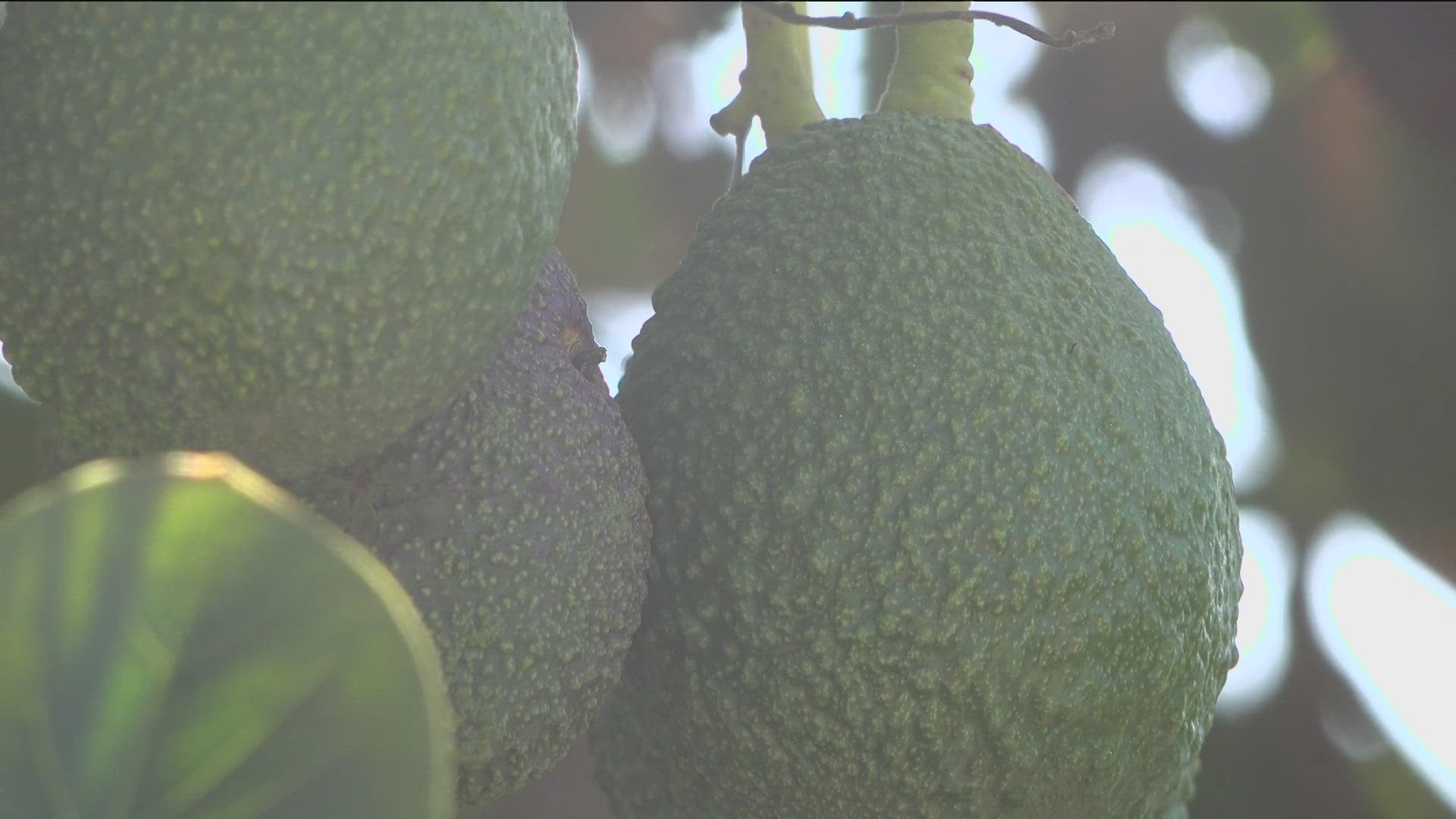VALLEY CENTER, Calif. — For years, inspectors from the U.S. Department of Agriculture's Animal and Plant Health Inspection Service, or APHIS, had been inspecting avocados coming in from Mexico for diseases and pests that could hurt U.S. crops.
However, the USDA reported threats and documented violence against APHIS inspectors in Mexico for not allowing deceptive shipments in recent years. In September, the USDA passed over inspections to Mexico officials.
The California Avocado Commission and local farmers are worried inspectors in Mexico will face even more severe threats, which could result in uninspected avocados coming into the U.S. and bringing pests with them.
Robert Jackson is a local avocado grower and is on the board of directors for the California Avocado Commission. He has six avocado farms that produce about 3.5 million pounds of avocados each year. With the inspection change, he worries about pests coming to his ranch.
"What the USDA has done is not in the best interest of the California avocado farmer," Jackson said.
Jackson gave me a tour of his 50-acre Valley Center avocado ranch. He showed me what happens to a tree that a pest gets to.
"We have what is referred to as persea mites," Jackson said. "Persea mites came from the importation of fruit and avocados, primarily, we think, from Mexico."
The pests eat through the leaves, causing them to fall off the tree and leave the fruit exposed.
"You get a bleaching of the fruit because there's no leaves to cover it from the direct sunlight, and then that fruit then becomes essentially second grade or unmarketable," he said.
Jackson and the California Avocado Commission are against the change in inspectors and worry about what will happen to California's avocado industry if there's a potential pest infestation. The group wrote a letter to the Secretary of Agriculture at the USDA in hopes of reversing the move.
"There's nothing I can do on a local level, this is going to be something that the USDA has got to reverse, and if they don't do it, we've got to go to our federal and state legislators and say, you know, we need help," Jackson said.

